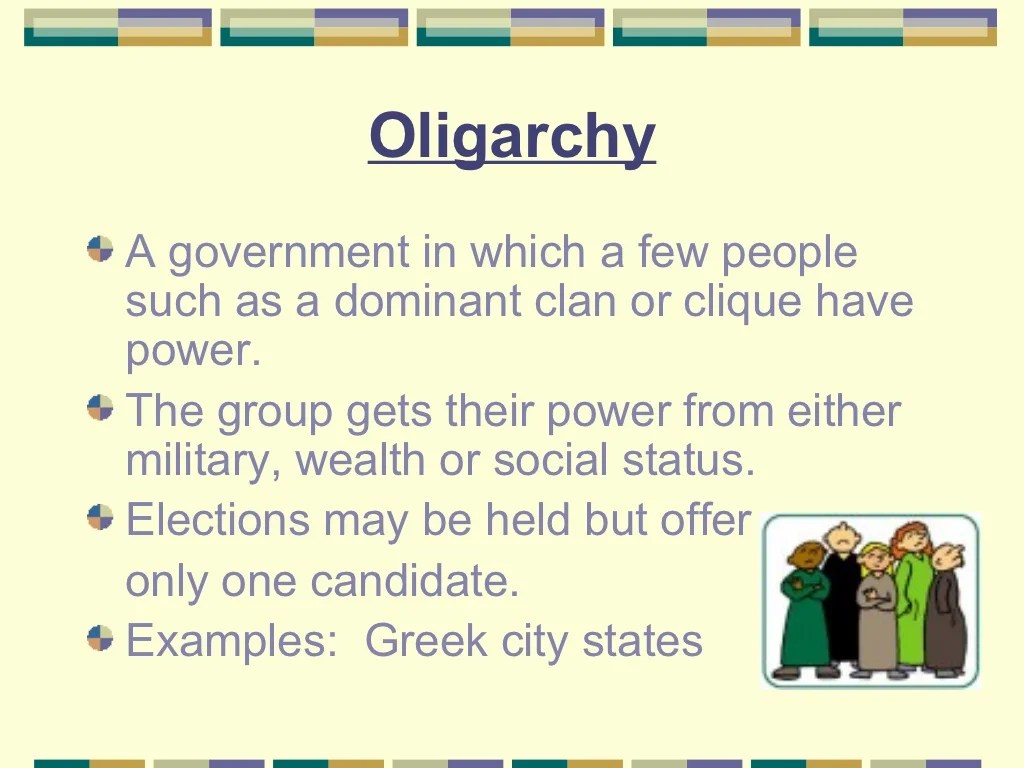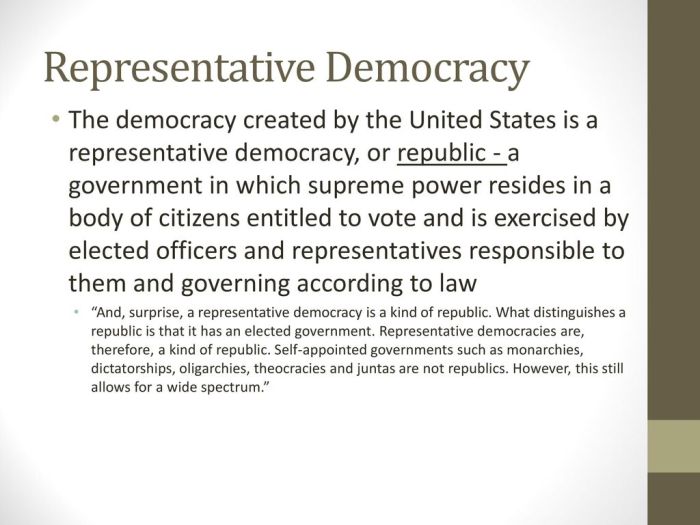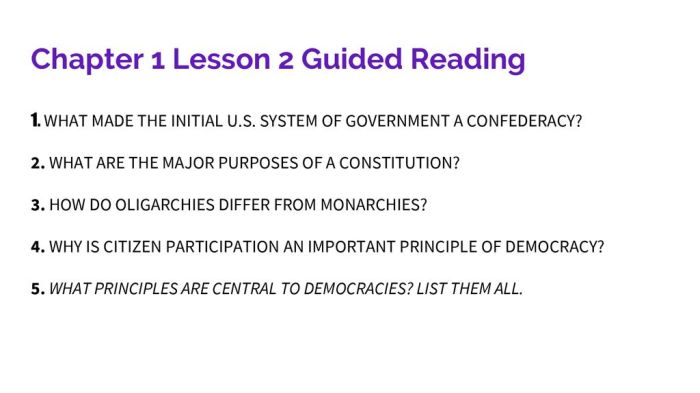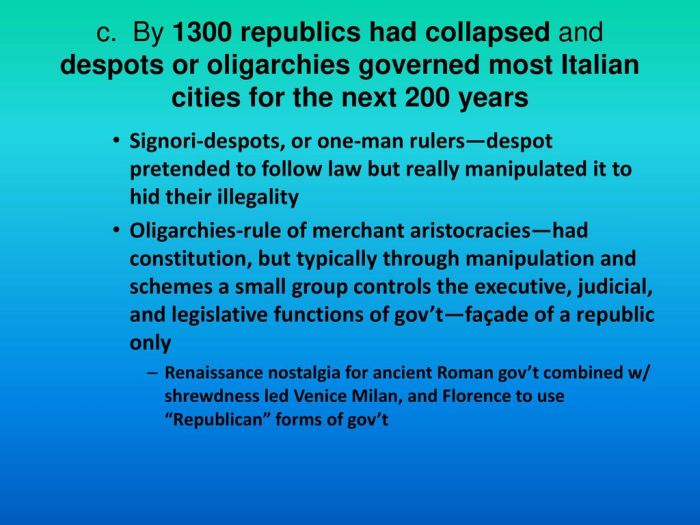How did rule differ under oligarchies democracies and republics – How did rule differ under oligarchies, democracies, and republics? This question has intrigued political scientists and historians for centuries, and it remains relevant in today’s world. In this essay, we will explore the key differences between these three forms of government, examining how power is distributed, how citizens participate, and how decisions are made.
We will also provide historical examples of each type of government and analyze the factors that contributed to their success or failure.
Oligarchies

Oligarchy is a form of government in which power is vested in a small group of individuals or families. Oligarchies are often characterized by the concentration of wealth and influence in the hands of a few, and the exclusion of the majority from meaningful participation in political decision-making.
Power Distribution and Exercise
In an oligarchy, power is typically distributed among a small group of elites, who may be drawn from the wealthy, the nobility, or a particular political or economic faction. These elites exercise their power through control of the government, the military, and the economy.
Role of Elites and the Wealthy
In oligarchic societies, elites and the wealthy play a dominant role in shaping policy and controlling resources. They often use their influence to protect their own interests and maintain their privileged position. This can lead to a lack of accountability and responsiveness to the needs of the broader population.
Democracies

Democracy is a form of government in which power is vested in the people and exercised through elected representatives. Democracies are based on the principles of equality, freedom, and popular sovereignty.
Definition and Key Principles
Democracy is defined as a system of government in which all or most adult citizens have the right to participate in the decision-making process. Key principles of democracy include:
- Political equality: All citizens have equal rights and opportunities to participate in political life.
- Majority rule: Decisions are made based on the will of the majority, while protecting the rights of minorities.
- Free and fair elections: Citizens have the right to vote for their representatives in free and fair elections.
Types of Democracies
There are different types of democracies, including:
- Direct democracy: Citizens directly participate in decision-making, typically through referendums and initiatives.
- Representative democracy: Citizens elect representatives to make decisions on their behalf.
- Constitutional democracy: The government’s power is limited by a constitution that guarantees individual rights and freedoms.
Power Sharing and Distribution
In democracies, power is shared and distributed among different branches of government, such as the executive, legislative, and judicial branches. This separation of powers helps to prevent any one branch from becoming too powerful.
Republics: How Did Rule Differ Under Oligarchies Democracies And Republics

A republic is a form of government in which the country is considered a “public matter,” not the private concern or property of the rulers. The primary characteristic of a republic is that the government is elected by the people.
Definition and Distinguishing Characteristics, How did rule differ under oligarchies democracies and republics
A republic is a state in which the supreme power is vested in the people and their elected representatives, rather than in a monarch. Distinguishing characteristics of a republic include:
- Elected representatives: The government is elected by the people, and the people have the right to vote for their representatives.
- Rule of law: The government is subject to the rule of law, and all citizens are equal before the law.
- Limited government: The government’s power is limited by a constitution or other legal framework.
Role of Elected Representatives
In republics, elected representatives play a crucial role in representing the interests of the people and making decisions on their behalf. Representatives are accountable to the people and can be removed from office through elections.
Powers and Responsibilities of Branches
In republics, the powers and responsibilities of the executive, legislative, and judicial branches are typically separated and balanced. The executive branch is responsible for enforcing laws and managing the government, the legislative branch makes laws, and the judicial branch interprets and applies the laws.
FAQ Corner
What is the main difference between an oligarchy and a democracy?
In an oligarchy, power is held by a small group of elites, while in a democracy, power is held by the people, either directly or through elected representatives.
What are the advantages of a republic?
Republics combine elements of both oligarchy and democracy, providing a balance between the rule of law and the will of the people.
What are the disadvantages of an oligarchy?
Oligarchies can be unstable and prone to corruption, as the ruling elites may be more interested in preserving their own power than in serving the needs of the people.
